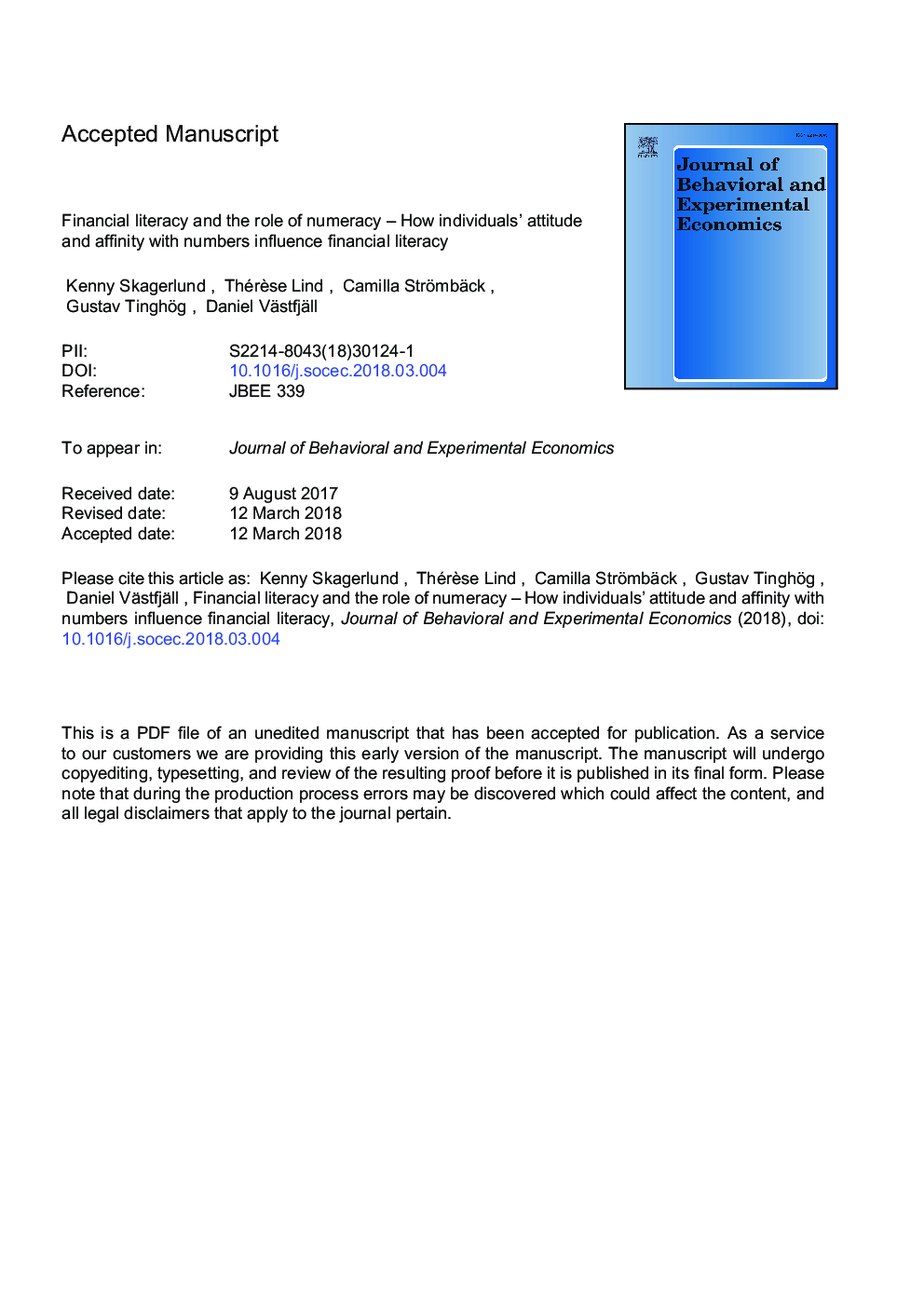| Article ID | Journal | Published Year | Pages | File Type |
|---|---|---|---|---|
| 7241948 | Journal of Behavioral and Experimental Economics | 2018 | 32 Pages |
Abstract
Being financially literate is an important life skill that is equally important for one's own sake as well as for society. Findings indicate that individuals are financially illiterate while interventions to increase the level of financial literacy are ineffective. The effect of financial literacy on financial behavior reported in correlation studies may be driven by some unknown third variable, such as individual cognitive ability. The current study investigated the role of cognitive and emotional factors in attaining financial literacy. In a representative sample of the general population, our regression models indicate that a central component of financial literacy can be traced to numeracy and the emotional attitude towards numbers (i.e. mathematics anxiety). Thus, a driving force behind becoming financially literate resides in the ability to understand numbers and having an emotional attitude towards numbers that does not interfere with an individual's daily engagement in activities involving mathematics and financial decisions.
Related Topics
Social Sciences and Humanities
Economics, Econometrics and Finance
Economics and Econometrics
Authors
Kenny Skagerlund, Thérèse Lind, Camilla Strömbäck, Gustav Tinghög, Daniel Västfjäll,
